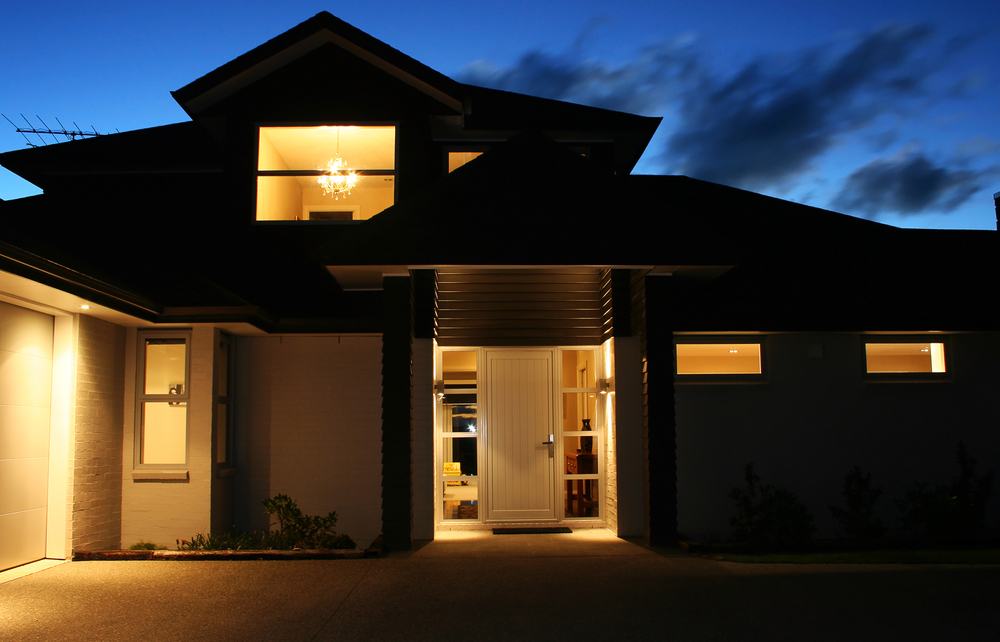What would happen if someone forced their way into your home? When there’s no time to stop and “ask Alexa” about your local home defense laws, it’s helpful to already have some knowledge about the California Castle Doctrine in mind. Once the alarm is triggered and you have seconds to act, it’s too late to consider your best course of action.
What Is the California Castle Doctrine?
Many people across the country first learned about the “Stand Your Ground Laws” in February of 2012. This was when the highly publicized case of George Zimmerman shooting and killing an unarmed 17-year-old named Trayvon Martin was the main topic of news. Stand-your-ground laws are only enacted in some states and they allow anyone to use deadly force if they believe they face a deadly threat.
The shooting of Trayvon Martin occurred in Florida, one of many states that have adopted some form of the stand-your-ground law. The incident sparked a nationwide debate, particularly when Zimmerman was acquitted of charges after firing on the teenager, who was armed with nothing more than a pack of skittles and a bottle of tea.
Basically, what the law does is remove the duty to retreat from a threatening situation before resorting to deadly force. The reason the case sparked such outrage was that Zimmerman actually pursued Martin after police cautioned him not to follow the teen. There seemed to be no basis for Zimmerman’s claim that he felt threatened by the teen when he was the aggressor in the case.
The Castle Doctrine is a form of the stand-your-ground law. Like the stand-your-ground law, there is no duty to retreat but invoking this law is limited to real property such as your home, yard, or a private office. Other states that have adopted their own version of the Castle Doctrine have differences such as including personal vehicles. All Castle Doctrines are designed to help people “protect their castle” but different states do it in different ways.
What You Need to Know about the California Castle Doctrine
It’s easy to understand why the different types of self-defense laws from state-to-state make it so confusing for homeowners who want to protect their property and families. Failing to understand the fine details of the laws can make the difference in whether you are prosecuted for assault or murder or you go free. The best time to learn about your state’s laws is before you are placed in a situation where you must make an instant decision. In California, the following situations must occur to justify the use of deadly force.
- You knew, or had reason to believe, the person entered your home in a manner inconsistent with the law
- The intruder acted in an unlawful way
- You or anyone else in your home did not provoke the intruder in any way
- You had a reasonable fear of imminent peril of death or great bodily injury to you, a family member, or someone else in your household
California’s doctrine refers to the right to defend yourself with deadly force as “justifiable homicide.” Specifically, you must reasonably believe you are in danger of being injured or killed, that you needed to use force to prevent being injured or killed, and you used no more force than was necessary to prevent that from happening.
Remember in school when your teacher or coach told you it didn’t matter who threw the first punch, you were both equally at fault for the fight? That argument goes out the window when it comes to the conditions of the doctrine. As long as you do not make the first strike, you can expect to get away with a claim of self-defense.
In California, the castle doctrine allows you to go even further to protect yourself and your loved ones. If someone breaks into your home, you have the right to use deadly force against them. What’s more, you even have the legal right to chase an attacker to neutralize the threat to your life.
Why Stand-Your-Ground Laws Are so Controversial
The controversy comes from more than just the Zimmerman vs Martin case. Once you read some of the other cases in the news, it’s easy to see why so many people think stand-your-ground laws give people a ‘license to kill’. Many feel that these laws increase violence instead of protecting the people who use them.
In a previous study of the effects of stand-your-ground laws in Florida, a number of cases showed that more than half of the people who invoked the law had killed before. An amazing 79% of the people who were killed could have retreated and avoided the confrontation. Nearly 70% of those killed were unarmed.
The Potential Case for Self-Defense in Your Home
The California Castle Doctrine doesn’t just protect you if you defend yourself against murder. It is also a legal defense if you think someone is going to injure or rape you. Even if the threat is only imagined and not real, all you have to do is believe it and prove that you felt the threat was real. This puts the person on the other side of the situation at risk of injury or death even if they didn’t intend to hurt or kill you.
There are also some problems for the shooter. Consider the following scenario and the repercussions of an act of self-defense.
You are a woman at home alone with your two young children. The kids are asleep and you’re spending some time watching TV in bed to unwind after a long, hard day. When you hear glass break from the direction of the front door, you know someone is trying to break into your home.
You live in a safe neighborhood so you’ve never installed a security system. You need to call 911 but you don’t want to give the intruder time to get upstairs. You need to get to your children before they do.
You have a gun in the nightstand ‘just in case’ but you never thought you’d really need it. You get it at quickly as you can before hurrying into the kids’ room. You close the door quietly behind you. It isn’t until you sit on the side of your child’s bed that you realize there’s no phone in here and no way to call for help.
Your children are sound asleep in their twin beds, one just a few feet away from the other. You’re sitting on the one that belongs to your youngest, with nothing to do but wait with the gun in your hand.
Time drags by as you listen for sounds from anywhere in the house that signal the intruder is nearby. It’s difficult to hear with the sound of your heart beating in your ears. The moon shining through the window casts a light glow across the floor. That’s the only light besides the night light between the beds when the door begins to ease open.
When the intruder steps inside, you raise the gun and fire a shot. The kids awake in terror with no idea of what is going on. Still lying in the doorway, you must step across the intruder to get to the phone and call 911.
During the scenario, you probably aren’t thinking that the California Castle Doctrine will protect you. The fact is that with no way to escape without confronting the intruder, you were legally protected even before the law was enacted. But, that doesn’t mean you won’t have to go through a legal process to prove your right to self-defense.
Once the police arrive, you tell your story, confidently explaining that you had no choice but to shoot the intruder. Only now do you learn that it was an eighteen-year-old that lives in your neighborhood and he is dead.
Like many people, you might be surprised when, at this point in your story, the officers arrest you and take you to jail. Too often, those people who invoke their right to self-defense don’t consider that this is their defense for the charges against them.
You may have the option to get out on bail if it’s an option you can afford. The time you spend in jail is time that you can’t be with your kids. Your efforts to protect them could be the very thing that keeps you apart.
Remember back to the case of George Zimmerman. He was charged and tried, not left free to go about his business just because he claimed self-defense. It was the fact that he was found not guilty that caused the controversy. The case opened more people’s eyes to what the law meant. It didn’t necessarily drive the point home that shooting an intruder isn’t necessarily the end of the story.
Alternatives to Stand-Your-Ground Laws
It’s difficult to predict what you will do in any given situation, especially when it comes to protecting your family. When an intruder comes into your home, you never know if they are carrying an assault rifle or no weapon at all. It’s also impossible to know their intentions and whether they intend to cause you physical harm. If you knew what you were dealing with, perhaps a shout or a warning shot would be enough to make them go the other way.
A better and more predictable way to handle these situations is to prevent them from occurring in the first place. Regardless of the reason an intruder tries to gain entry into your home or whether they are armed when they do, making it more difficult to get inside is your first and best line of defense. No one that you don’t invite into your home has the right to enter it.
No neighborhood is completely safe and secure. In fact, burglars look for the better neighborhoods when considering their targets. There’s also the fact that all home invasions are not burglaries and the majority do not occur during the night. Kidnappings, rapes, and murder are also risks when strangers enter your home. Don’t make the mistake of thinking you could never be a victim. Considering there are 1.03 million home invasions in the U.S. each year, your risk of being a target is much higher than you might think.
Preventing Home Invasion
The single best way to prevent intruders from entering your home uninvited is with a top quality security system. Today’s smart technology makes it easy to view every area of your home from any location. Your security package gives you a number of benefits, such as motion detection lights. With 24/7 monitoring, you’re never home alone. Any time an intruder tries to get inside, your system lets the authorities know so help is on its way.
Traditionally, trying to deter invaders meant trying to make your home look like someone was there even when they weren’t. Now, you can control your lights, locks, and even speak directly to anyone who dares approach your home.
Many people feel that adopting stand-your-ground laws and the similar California Castle Doctrine is a step backwards in time. Smart Home technology, on the other hand, is the most advanced way to protect your home and the ones you love. It’s the future of home security and it combines many conveniences with top rated security. Keep out intruders, control your heat, and even turn off the coffee pot to prevent the risk of fire.
Relying on technology is a much better choice than relying on laws like the California Castle Doctrine to protect you. Smart Home Technology protects you and your home from every angle and any location. It takes care of deterring would be invaders without the need to defend your actions once the episode is over. A Smart Home protects you in every way that matters the most to you.
Smart Shield Systems has the technology options to make every home a smart home. Smart Shields Systems include the best in smart home equipment and support services. Contact them to learn more about the options for creating a unique security package to keep your home safe. Build your smart home system and take charge. You really can live smarter and enjoy real security that comes with a happy ending.




















